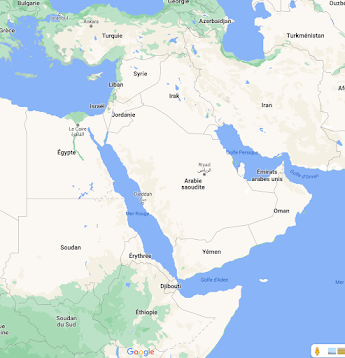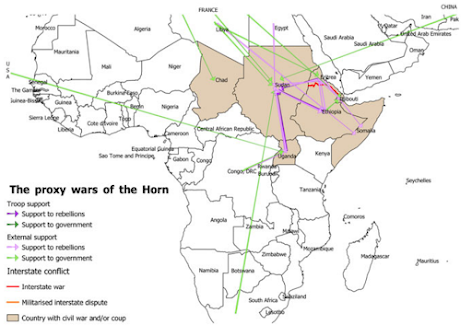2 - The (absence of) 'water wars'
Hi everyone and welcome back to my blog on the hydropolitics along the Nile. In this entry, I will discuss Wendy Barnaby’s essay: ‘Do nations go to war over water?’ (Barnaby 2009). I chose to start my blog entries with this because I believe that it cleverly addresses some of the popular misconceptions around the politics of water. In my introduction to the blog, I explored some of the discourses surrounding Africa (Wainaina 2019). I therefore find it suiting that I follow up with discourses about water, and more specifically ‘water wars’.
'Countries do not go to war overwater, they solve their water shortages through trade and international agreements.' (Barnaby 2009, 282)
Between 1948 and 1999, Barnaby counted 1,831 events whereby water was at the centre of the interaction (Barnaby 2009). Howevere, none of them ended in a war. Indeed, 67% were solved peacefully through cooperation, and 28% of them were conflictive but with no declaration of war involved (Barnaby 2009). As a result, Bernaby concludes that: ‘power struggles and politics have led to overtand institutionalized conflict over water — but no armed conflict, as there is over borders and statehood’ (Barnaby 2009, 283). When I further investigated this statement, it turns out that the only ever ‘water war’ was between Lagash and Umma, two Sumerian city-states along the Tigris (Cooper 1983). This happened in 2,500 BC, so 4,500 years ago. As a matter of fact, since then, there has only been 7 armed disputes where water was the main reason. In 3 of those 7 conflicts, no shots were fired. None of the 4 others ended anywhere near a declaration of war (Wolf 1997).
At first, I found this discovery to be very surprising and therefore wondered what waused me to think otherwise. It turns out that the assumption that ‘water wars’ are frequent stems from popular non-peer reviewed work or the media (Brochman and Gleditisch 2012). The most famous of them being Ismail Serageldin’s statement (former World Bank vice president): “the wars of this century were fought over oil, the wars of the next century will be fought over water.”
However, as it turns out, it was not true and for different reasons. The main one is virtual water. This notion, which is not very well-known to the media and most people, describes the water that is used in agriculture to grow the crops (Allan 2003). Importing food is therefore a way to save water and therefore to reduce conflicts (Barnaby 2009). A salient example is the following: more virtual water embedded in grain is imported in the Middle East per year than actually flows through the Nile (Barnaby 2009).
The absence water wars can also be explained by the fact that ‘war over water is not strategically rational, hydrographically effective, or economically viable’ (Wolf 1997, 262). Indeed, as the concept of Integrated Water Resources Management cleverly points out, ‘neighbours are doomed to live together in future; and realise that short term gains, accrued through selfish behaviour, in the long term will prove self-destructive’ (Van der Zaag 2005, 869). It therefore makes more sense to solve a dispute about water through cooperation rather than through war. This is exactly what the Nile Basin initiative attempts to do, although there is still plenty to work on.
Nevertheless, it is important to highlight that ‘water has often been the object, target or weapon of military or terrorist action’ (Kundzevicz and Kowalczac 2009). Moreover, although there has been no water war, it does not mean that no attention should be paid to potential future water conflicts, quite the opposite. As Thomas and Laura Meek (2009) point out, the growing inequalities between countries and between individuals, as well as the impact of climate change on water, are likely to increase the potential for water conflict.
As a response to these calls for attention to water conflicts, I will dedicate the next fex entries of my blog to conflicts along the Nile. Thank you for reading!






This is a nice attempt at teasing out the notion of water wars in African, it is well presented. There are quite a few ideas thrown up in the post, and my suggestion will be to focus on one issue say transboundary politics in the Nile basin between Egypt and Sunda or Egypt and Ethiopia or among these three players.
ReplyDeleteThank you for your feedback! I will try to address this in my next blogposts as they will focus on the Grand Ethiopian Renaissance Dam and the politics between Egypt, Sudan and Ethiopia.
Delete